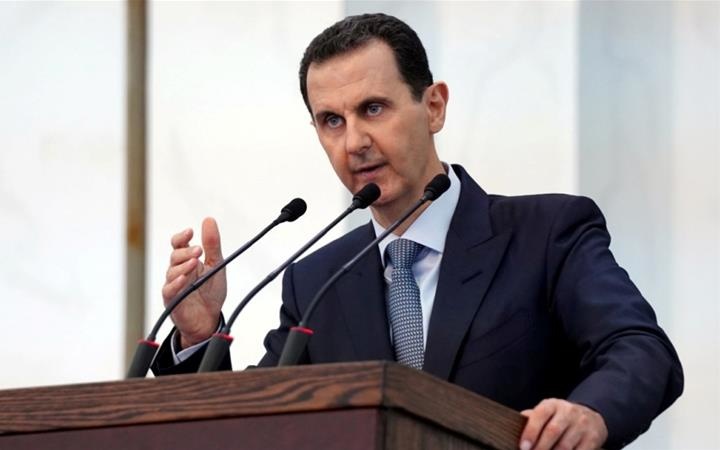With regime-held areas of Syria in economic crisis and facing Coronavirus, Bashar al-Assad has appealed to people to support the collapsing currency.
But Assad’s plea was cut short when he had to halt the speech.
He told an audience of legislators, “My blood pressure has dropped and I need to drink water,” as he took a couple of sips. He soon said, “I need to sit for a minute if you don’t mind,” and left the hall.
Assad returned after an unknown period of time and tried to joke, “Doctors are the worst patients”. He claimed, “I haven’t eaten since yesterday afternoon. I have no sugar or salt and this happens.”
Assad used the speech to denounce additional US sanctions, imposed in June under the “Caesar Act” over the regime’s crimes against humanity, including the torture, execution, and death in detention of tens of thousands of prisoners.
He blamed the restrictions for the Syrian pound’s fall to more than 3,000:1 v. the US dollar, compared to 500:1 last autumn and 47:1 at the start of the Syrian uprising in March 2011.
See also Syria Daily, June 14: Regime Meetings Over Collapsing Currency
With a loss of about 75% in GDP since March 2011, people in regime areas are facing high rates of inflation, electricity outages, and shortages of food, fuel, and other basic goods.
The situation has been compounded by a banking crisis in Lebanon, where many Syrian individual and companies hold their accounts.
Criticizing Syrians who buy foreign currency, Assad proclaimed, “Our support of the pound is a source of our strength.”
He asserted, “The Caesar Act is not a separate case, it is another phase in stages of sanctions that preceded it for years and which have caused huge damage.”
Still trying to establish legitimacy amid a 113-month conflict and fractured country, Assad declared that last month’s managed elections, ensuring his inner circle took the large majority of votes and National Assembly seats, had a “multiplicity in the lists” for “a true competition” in “a patriotic movement”.
Assad did not set out any specific policies, instead denouncing the US, Israel, Turkey, and “terrorists” as he called for “the right legislation that organizes the relation between the state’s institutions and between the citizens and establishments”.

